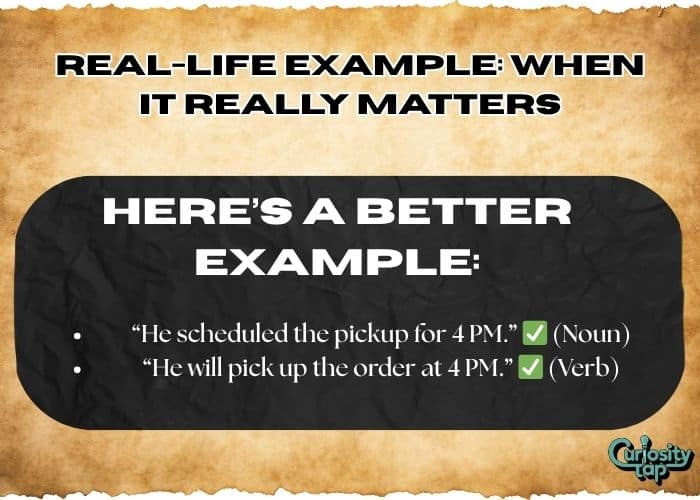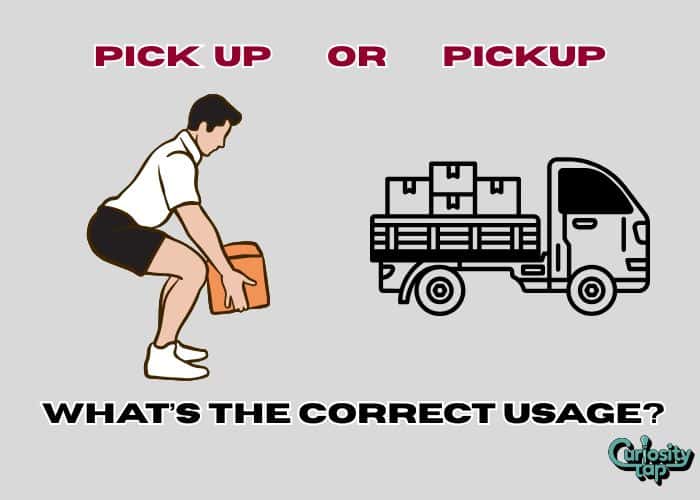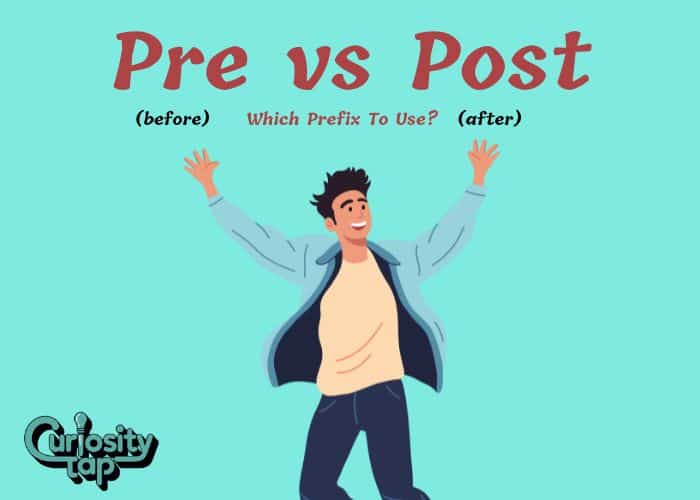English can be confusing especially when a single phrase can be written in three different ways: pickup, pick up, and pick-up.
If you’ve ever paused while writing an email or editing a paper wondering which one to use, you’re not alone.
In this guide, we’ll break down the differences, show you how and when to use each form, and help you remember them with real-life examples and a handy cheat sheet.
By the end, you’ll confidently use the right form of “pick up” every time.
Why Does “Pickup” Have So Many Variations?
The confusion comes from how English transforms words:
- Phrasal verb: pick up (action)
- Noun: pickup (thing)
- Adjective: pick-up (modifier)
Each version has its own function, and using the wrong one can confuse your reader or change your meaning entirely.
1. The Phrasal Verb: “Pick Up”
When used as a verb, pick up is always two separate words.
Common Uses of “Pick Up” as a Verb
- To lift something: “Please pick up your jacket.”
- To collect someone or something: “Can you pick up the kids from school?”
- To acquire: “He picked up Spanish while living in Argentina.”
Tense and Forms of the Verb
| Tense | Example |
|---|---|
| Present | I pick up the mail. |
| Past | She picked up a cold. |
| Continuous | We’re picking up groceries. |
✅ Tip: If you can insert a pronoun between “pick” and “up” (“pick it up”), it’s a phrasal verb.
2. The Noun: “Pickup”
When used as a noun, it’s written as one word: pickup.
Examples of “Pickup” as a Noun
- A type of truck: “He bought a red pickup last week.”
- The act of collecting someone/something: “Schedule a pickup for the package.”
- An improvement: “There’s been a sudden pickup in sales.”
Pickup as a noun describes a thing or an event, not an action.
3. The Adjective: “Pick-Up”
Hyphenated pick-up is typically used as a modifier before nouns.
Examples of “Pick-Up” as an Adjective
- Pick-up location
- Pick-up basketball game
- Pick-up line
Although less common now (since style guides like AP and Chicago Manual of Style favor the closed form “pickup”), hyphenation is still used in some cases to avoid ambiguity or improve clarity.
Also Read: Tying or Tieing? Correct Spelling & Grammar Explained

Real-Life Example: When It Really Matters
Imagine this sentence in a workplace email:
“Let’s discuss the pickup.”
Now compare it to:
“Let’s discuss the pick up.”
In the first sentence, you’re referencing an event (the pickup of something).
In the second, you’re likely missing context it sounds incomplete.
Here’s a better example:
- “He scheduled the pickup for 4 PM.” ✅ (Noun)
- “He will pick up the order at 4 PM.” ✅ (Verb)
A client once emailed, “Can we change the pick up?” when they meant pickup.
The recipient thought they meant the action (to pick something up), but the client was actually referring to a delivery slot. That small grammar mix-up delayed the order by two days.
Comparison Table: “Pick Up” vs. “Pickup” vs. “Pick-Up”
| Form | Type | Example Sentence | Tip for Use |
|---|---|---|---|
| Pick up | Phrasal Verb | “I will pick up the dry cleaning.” | Use when describing an action |
| Pickup | Noun | “The pickup is scheduled at 2 PM.” | Use when describing a thing or event |
| Pick-up | Adjective | “Go to the pick-up zone.” | Use before a noun as a modifier |
Actionable Checklist: How to Choose the Right Form
✅ Use “pick up” when it’s something you do
✅ Use “pickup” when it’s something you refer to
✅ Use “pick-up” when it’s modifying another noun
FAQs: People Also Ask
Is “pickup” one word or two?
Both are correct it depends on the part of speech. Use “pickup” as a noun and “pick up” as a verb.
Is “pickup” hyphenated?
Only when used as an adjective before a noun: pick-up line. Even then, many style guides now allow “pickup.”
Can I say “pick-up” as a verb?
No. Verbs should always be two words: pick up.
What is a “pickup” in slang?
In informal contexts, a “pickup” can mean a casual romantic advance a pick-up line.
What’s the plural of pickup?
The plural is pickups no space or hyphen needed.
Is “pickup truck” one word or two?
It’s written as two words: pickup truck (noun + noun), but “pickup” is one word here.
Also Read: Cancelation or Cancellation: Which Spelling is Correct?
Pros and Cons of Each Form
| Form | Pros | Cons |
|---|---|---|
| Pick up | Clear action, easy to understand | Confusing when misused as a noun |
| Pickup | Concise, widely accepted | Can be vague in informal writing |
| Pick-up | Adds clarity before nouns | Becoming outdated in modern usage |
Conclusion: Mastering the “Pickup” Puzzle
When in doubt, ask yourself: Is it an action, a thing, or a modifier?
Mastering the difference between pickup, pick up, and pick-up might seem like a small detail but getting it right shows professionalism, attention to detail, and command over the language.
Next time you’re writing a message or article, you’ll know exactly which form to use and why.
➡️ Want to learn more about tricky English terms like this? Check out our [Common Grammar Confusions Series] and [English Writing Tips] your toolbox for confident communication.
Sources
Sources:
- Purdue Online Writing Lab. (2023). Pick up vs. pickup: Grammar rules. Retrieved from https://owl.purdue.edu
- Merriam-Webster Dictionary. (2024). Pickup. Retrieved from https://www.merriam-webster.com/dictionary/pickup
- APA Style Blog. (2023). Hyphenation and compound words in academic writing. https://apastyle.apa.org
Read more knowledgeable blogs on Curiosity Tap
Is this article helpful?

Jackson Pearson is a passionate educator and language enthusiast behind the blog Jackson Pearson. With years of experience in teaching and writing, he specializes in simplifying complex grammar rules, breaking down tricky vocabulary, and crafting learning guides that are both engaging and practical. His mission is to help readers boost their English skills whether they’re beginners or brushing up for fluency. Through every article, Jackson brings clarity, structure, and a spark of curiosity to the world of English learning.



